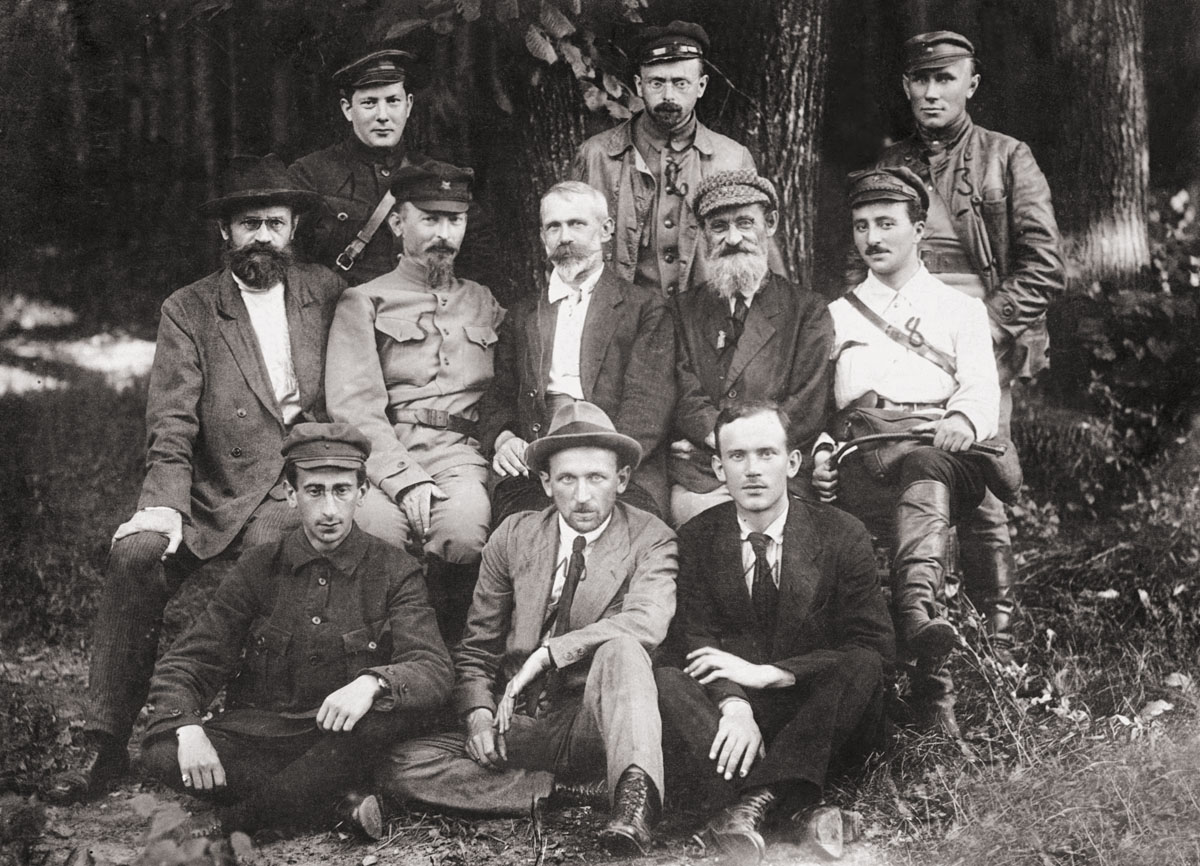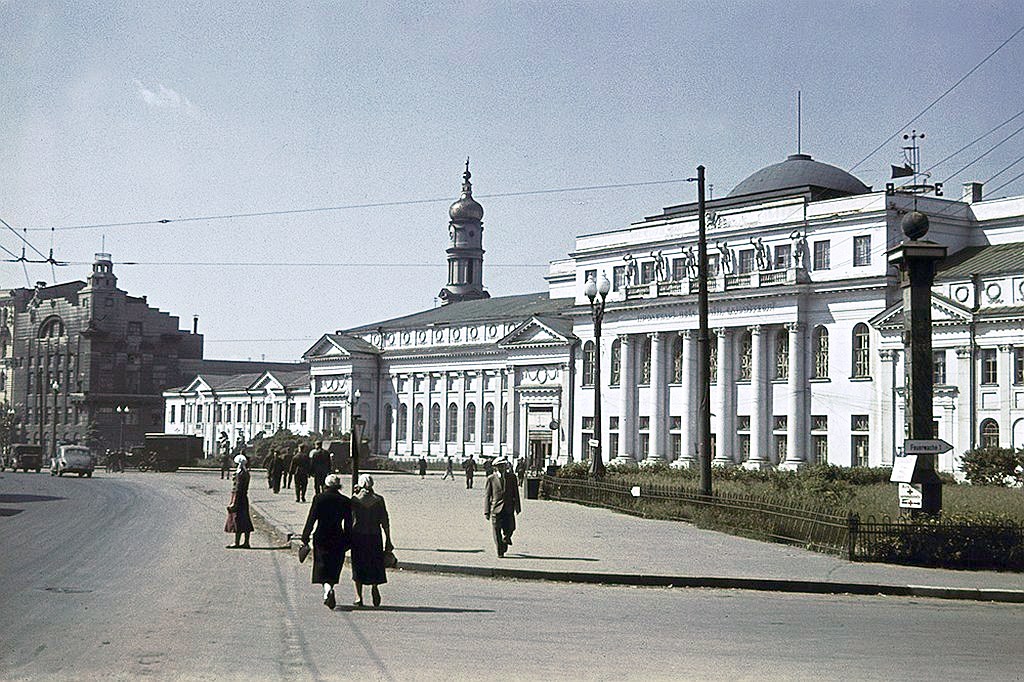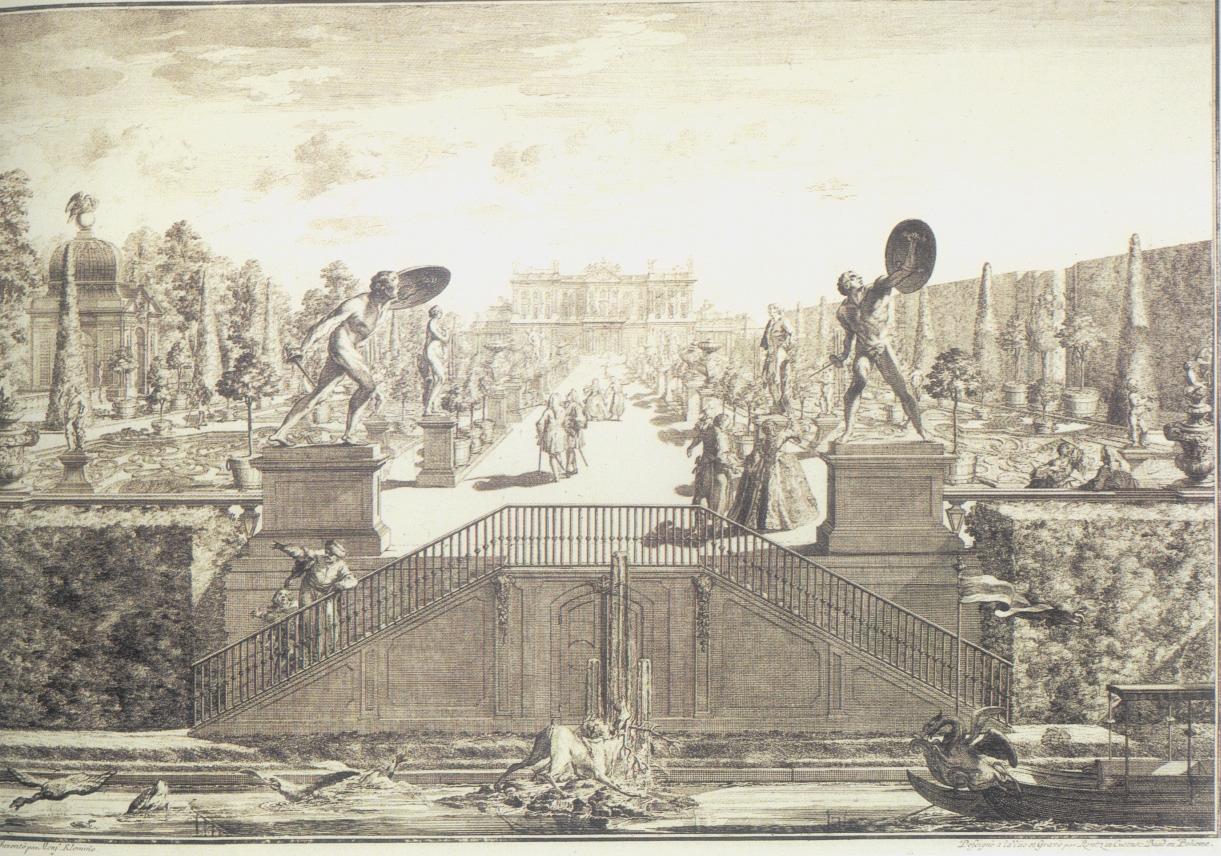|
Feliks Kon
Feliks Yakovlevich Kon (18 May 1864 – 30 July 1941) was a Polish communist activist, politician, ethnographer, publicist and journalist. He was the editor-in-chief of the Soviet satirical magazine, '' Krokodil''. Life and career Born in Warsaw, Kon was the son of Yakov Kon (Hebrew: ) and a Georgian Jewish woman who was brought up in Russia. He was trained as a historian and a journalist, but was involved in politics. He had limited knowledge of Polish affairs at first, but intuitively felt the revolutionary element among Polish workers that he could mobilize. He was a member of the anti- Piłsudski faction of the Polish Socialist Party and gravitated towards the anti-independence & pro-communism point of view. In January 1897 the Tsarist government at last taken took an administrative decision to banish him. He was exiled to Irkutsk and began working on the progressive newspaper "Vostochnoye Obozrenie" (Eastern Review). As the Bolsheviks began to prepare for the ... [...More Info...] [...Related Items...] OR: [Wikipedia] [Google] [Baidu] |
Communist Party (Bolsheviks) Of Ukraine
The Communist Party of Ukraine ( uk, Комуністична Партія України ''Komunistychna Partiya Ukrayiny'', КПУ, ''KPU''; russian: Коммунистическая партия Украины) was the founding and ruling political party of the Ukrainian Soviet Socialist Republic operated as a republican branch (union republics) of the Communist Party of the Soviet Union (CPSU).Pyrih, R. Communist Party of Ukraine, the Soviet period (КОМУНІСТИЧНА ПАРТІЯ УКРАЇНИ РАДЯНСЬКОЇ ДОБИ)'. Encyclopedia of History of Ukraine. 2007 No decision of the government of Ukraine (Council of Ministers) was adopted without approval of the Central Committee of the Communist Party of Ukraine. The Communist Party of Ukraine is not one and the same party as the Ukrainian Communist Party or Ukrainian Communist Party (Borotbists). Founded as the Communist Party (Bolsheviks) of Ukraine (CP(b)U) in 1918 in Moscow, Russian SFSR, it was the sole go ... [...More Info...] [...Related Items...] OR: [Wikipedia] [Google] [Baidu] |
Józef Piłsudski
Józef Klemens Piłsudski (; 5 December 1867 – 12 May 1935) was a Polish statesman who served as the Naczelnik państwa, Chief of State (1918–1922) and Marshal of Poland, First Marshal of Second Polish Republic, Poland (from 1920). He was considered the ''de facto'' leader (1926–35) of the Second Polish Republic as the Ministry of National Defence (Poland), Minister of Military Affairs. After World War I, he held increasing dominance in Politics of Poland, Polish politics and was an active player in international diplomacy. He is viewed as a father of the Second Polish Republic re-established in 1918, 123 years after the final Partitions of Poland, Partition of Poland in 1795. Seeing himself as a descendant of the culture and traditions of the Polish–Lithuanian Commonwealth, Piłsudski believed in a multi-ethnic Poland—"a home of nations" including indigenous ethnic and religious minorities. Early in his political career, Piłsudski became a leader of the Polish Socia ... [...More Info...] [...Related Items...] OR: [Wikipedia] [Google] [Baidu] |
Krasnaya Zvezda
''Krasnaya Zvezda'' (russian: Кра́сная звезда́, literally "Red Star") is the official newspaper of the Soviet and later Russian Ministry of Defence. Today its official designation is "Central Organ of the Russian Ministry of Defence." ''Krasnaya Zvezda'' was created by the decision of the Politburo of the Central Committee of the RCP on 29 November 1923 as the central printing body of the People's Commissariat of defense of the USSR for military Affairs (later the Ministry of Defense of the USSR). The first issue was published on 1 January 1924. References External linksOfficial site the digital resource of the |
Vladimir Lenin
Vladimir Ilyich Ulyanov. ( 1870 – 21 January 1924), better known as Vladimir Lenin,. was a Russian revolutionary, politician, and political theorist. He served as the first and founding head of government of Soviet Russia from 1917 to 1924 and of the Soviet Union from 1922 to 1924. Under his administration, Russia, and later the Soviet Union, became a one-party socialist state governed by the Communist Party. Ideologically a Marxist, his developments to the ideology are called Leninism. Born to an upper-middle-class family in Simbirsk, Lenin embraced revolutionary socialist politics following his brother's 1887 execution. Expelled from Kazan Imperial University for participating in protests against the Russian Empire's Tsarist government, he devoted the following years to a law degree. He moved to Saint Petersburg in 1893 and became a senior Marxist activist. In 1897, he was arrested for sedition and exiled to Shushenskoye in Siberia for three years, where he m ... [...More Info...] [...Related Items...] OR: [Wikipedia] [Google] [Baidu] |
Comintern
The Communist International (Comintern), also known as the Third International, was a Soviet Union, Soviet-controlled international organization founded in 1919 that advocated world communism. The Comintern resolved at its Second Congress to "struggle by all available means, including armed force, for the overthrow of the international bourgeoisie and the creation of an international Soviet republic (system of government), Soviet republic as a transition stage to the complete abolition of the state". The Comintern was preceded by the 1916 dissolution of the Second International. The Comintern held seven World Congresses in Moscow between 1919 and 1935. During that period, it also conducted thirteen Enlarged Plenums of its governing Executive Committee of the Communist International, Executive Committee, which had much the same function as the somewhat larger and more grandiose Congresses. Joseph Stalin, leader of the Soviet Union, dissolved the Comintern in 1943 to avoid antag ... [...More Info...] [...Related Items...] OR: [Wikipedia] [Google] [Baidu] |
Communist Party (Bolshevik) Of Ukraine
The Communist Party of Ukraine ( uk, Комуністична Партія України ''Komunistychna Partiya Ukrayiny'', КПУ, ''KPU''; russian: Коммунистическая партия Украины) was the founding and ruling political party of the Ukrainian Soviet Socialist Republic operated as a republican branch ( union republics) of the Communist Party of the Soviet Union (CPSU).Pyrih, R. Communist Party of Ukraine, the Soviet period (КОМУНІСТИЧНА ПАРТІЯ УКРАЇНИ РАДЯНСЬКОЇ ДОБИ)'. Encyclopedia of History of Ukraine. 2007 No decision of the government of Ukraine (Council of Ministers) was adopted without approval of the Central Committee of the Communist Party of Ukraine. The Communist Party of Ukraine is not one and the same party as the Ukrainian Communist Party or Ukrainian Communist Party (Borotbists). Founded as the Communist Party (Bolsheviks) of Ukraine (CP(b)U) in 1918 in Moscow, Russian SFSR, it was the sole ... [...More Info...] [...Related Items...] OR: [Wikipedia] [Google] [Baidu] |
International Red Aid
International Red Aid (also commonly known by its Russian acronym MOPR ( ru , МОПР, for: ''Междунаро́дная организа́ция по́мощи борца́м револю́ции'' - Mezhdunarodnaya organizatsiya pomoshchi bortsam revolyutsii - literally: "International organisation for assistance to fighters for revolution")) was an international social-service organization. MOPR was founded in 1922 by the Communist International to function as an "international political Red Cross", providing material and moral aid to radical " class-war" political prisoners around the world. Organizational history Formation The International Workers Aid society, known colloquially by its Russian-language acronym, MOPR, was established in 1922 in response to the directive of the 4th World Congress of the Comintern to appeal to all communist parties "to assist in the creation of organizations to render material and moral aid to all captives of capitalism in prison." Julia ... [...More Info...] [...Related Items...] OR: [Wikipedia] [Google] [Baidu] |
Puppet Government
A puppet state, puppet régime, puppet government or dummy government, is a state that is ''de jure'' independent but ''de facto'' completely dependent upon an outside power and subject to its orders.Compare: Puppet states have nominal sovereignty, but a foreign power effectively exercises control through means such as financial interests, economic, or military support. By leaving a local government in existence the outside Powers evade all responsibility, while at the same time successfully paralyzing the Government they tolerate. Puppet states are distinguished from allies, which choose their actions on their own or in accordance with treaties they voluntarily entered. Puppet states are forced into providing legal endorsement for actions already taken by a foreign power. Characteristics A puppet state preserves the external paraphernalia of independence (such as a name, flag, anthem, constitution, law codes, motto and government), but in reality it is an organ of anot ... [...More Info...] [...Related Items...] OR: [Wikipedia] [Google] [Baidu] |
Managing Editor
A managing editor (ME) is a senior member of a publication's management team. Typically, the managing editor reports directly to the editor-in-chief and oversees all aspects of the publication. United States In the United States, a managing editor of a newspaper, magazine or other periodical publication oversees and coordinates the publication's editorial activities. The managing editor can hire, fire, or promote staff members. Other responsibilities include creating and enforcing deadlines. Most section editors will report to the managing editor. The ME must enforce policies set by the editor in chief. It is their job to approve stories for print or final copy. On matters of controversy, the ME decides whether to run controversial pieces. At a newspaper a managing editor usually oversees news operations while opinion pages are under separate editors. In trade book publishing, the managing editor is typically a senior executive in the production department, responsible for overal ... [...More Info...] [...Related Items...] OR: [Wikipedia] [Google] [Baidu] |
Białystok
Białystok is the largest city in northeastern Poland and the capital of the Podlaskie Voivodeship. It is the tenth-largest city in Poland, second in terms of population density, and thirteenth in area. Białystok is located in the Białystok Uplands of the Podlachian Plain on the banks of the Biała River, by road northeast of Warsaw. It has historically attracted migrants from elsewhere in Poland and beyond, particularly from Central and Eastern Europe. This is facilitated by the nearby border with Belarus also being the eastern border of the European Union, as well as the Schengen Area. The city and its adjacent municipalities constitute Metropolitan Białystok. The city has a warm summer continental climate, characterized by warm summers and long frosty winters. Forests are an important part of Białystok's character and occupy around (18% of the administrative area of the city) which places it as the fifth-most forested city in Poland. The first settlers arrived in th ... [...More Info...] [...Related Items...] OR: [Wikipedia] [Google] [Baidu] |
Provisional Polish Revolutionary Committee
Provisional Polish Revolutionary Committee ( pl, Tymczasowy Komitet Rewolucyjny Polski, Polrewkom; russian: Польревком) (July–August 1920) was a revolutionary committee created under the patronage of Soviet Russia with the goal to establish a Soviet republic within Poland, or a Polish Soviet Socialist Republic constituent in the Union of Soviet Socialist Republics. History Polrevkom was created on 23 July 1920, in Moscow by the Polish Bureau of Bolsheviks, with chairman Julian Marchlewski. The decision was made during the initial successes of the Red Army during the Polish-Soviet War with the goal of providing administration of the Polish territories. The committee was declared "provisional", because it was assumed that after a Soviet victory the power would be transferred to the Polish Communist Workers' Party. The Polrevkom was assembled on 24 July in Smolensk, with its headquarters in an armored train, which quickly proceeded to Minsk (25 July), Wilno (27 July ... [...More Info...] [...Related Items...] OR: [Wikipedia] [Google] [Baidu] |







